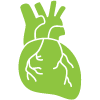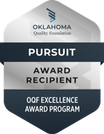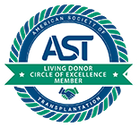Shape Divider - Style tilt
About Organ, Eye and Tissue Donation
The gift of organ and tissue donation truly saves and enhances lives, thanks to the heroic donors and courageous families. It offers hope right here in our community and throughout our state. LifeShare is a nonprofit organ procurement organization (OPO) dedicated to the recovery of organs and tissue for transplant purposes . Working in partnership with healthcare teams and other medical professionals, LifeShare provides extensive and compassionate services to help ensure every opportunity for donation and transplantation. We encourage you to learn more about organ, eye and tissue donation and get involved with LifeShare to help spread the word. Our core purpose is to save lives.
How Does the Donation Process Work?
Video courtesy of The Association of Organ Procurement Organizations (AOPO)









